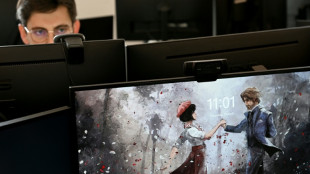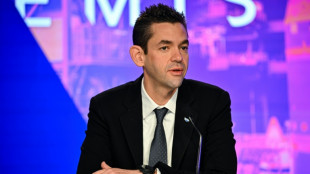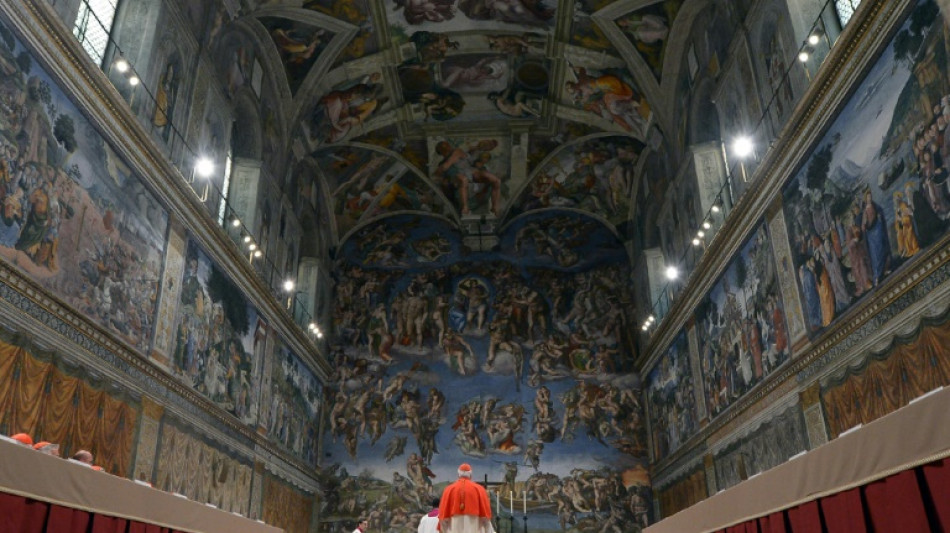
-
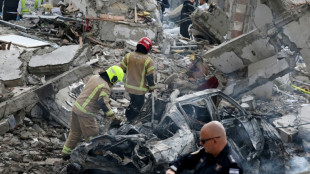 'A terrible day,' says Israel community shaken by deadly Iranian strike
'A terrible day,' says Israel community shaken by deadly Iranian strike
-
Arsenal corner Chelsea into submission, Man Utd climb to third
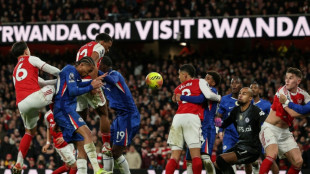
-
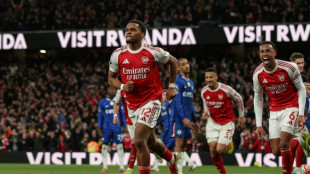 Arsenal win set-piece battle to sink Chelsea in title boost
Arsenal win set-piece battle to sink Chelsea in title boost
-
What future for Iranian leadership after Khamenei's death?
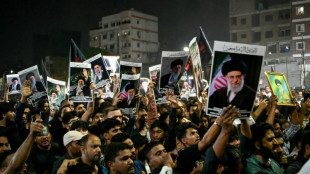
-
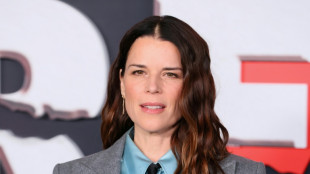 'Scream 7' makes a killing at N. America box office
'Scream 7' makes a killing at N. America box office
-
Thousands stranded as Iran conflict shuts Mideast hubs
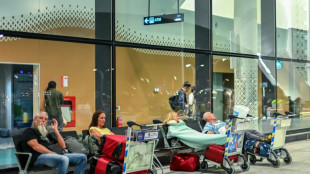
-
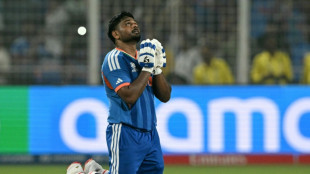 Samson's 97 puts India into T20 World Cup semi-final against England
Samson's 97 puts India into T20 World Cup semi-final against England
-
Latest developments as Iran retaliates to US-Israel strikes that killed Khamenei
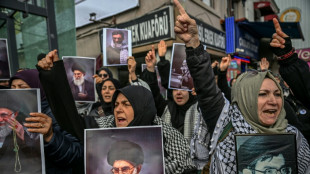
-
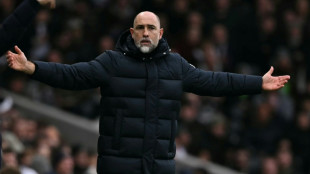 Spurs have 'big problems' says Tudor as relegation risk persists
Spurs have 'big problems' says Tudor as relegation risk persists
-
Dortmund captain Can out for season with ACL tear
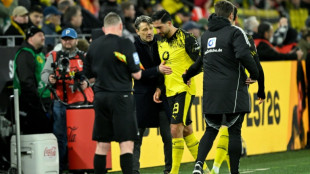
-
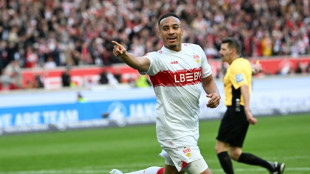 Leweling doubles up as Stuttgart sink sorry Wolfsburg
Leweling doubles up as Stuttgart sink sorry Wolfsburg
-
Man Utd climb to third, Fulham sink sorry Spurs
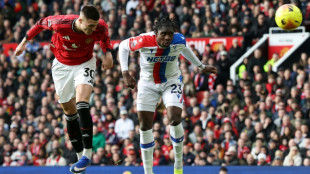
-
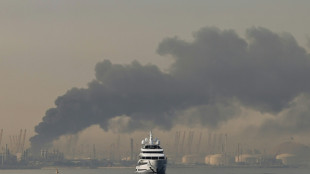 Iran strikes send VIP Dubai influencers 'back to reality'
Iran strikes send VIP Dubai influencers 'back to reality'
-
Briton Brennan bursts to Kuurne-Bruxelles-Kuurne triumph
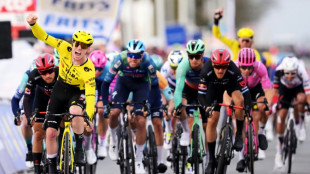
-
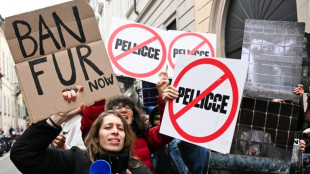 Activists pressure Milan Fashion Week to go fully fur-free
Activists pressure Milan Fashion Week to go fully fur-free
-
Blasts in Kabul as Afghan govt says responding to Pakistan attacks
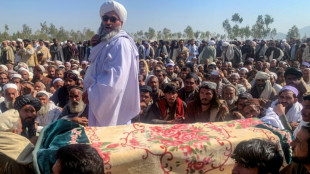
-
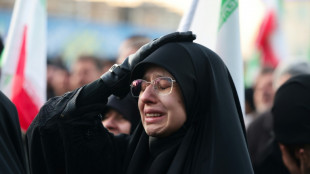 Iranians grieve, celebrate, worry after Khamenei's killing
Iranians grieve, celebrate, worry after Khamenei's killing
-
Latest developments as Iran lashes out after US-Israel strikes kill Khamenei
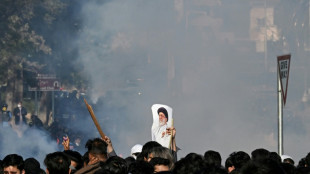
-
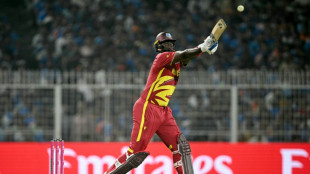 West Indies post 195-4 against India in T20 World Cup do-or-die clash
West Indies post 195-4 against India in T20 World Cup do-or-die clash
-
South Africa 'embrace pressure' and favourites tag, says coach
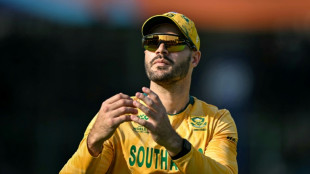
-
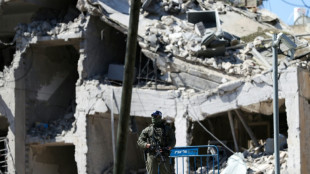 Tel Aviv residents say ready to withstand more Iranian attacks
Tel Aviv residents say ready to withstand more Iranian attacks
-
Russia loses key ally leader as Putin slams Khamenei 'cynical' killing
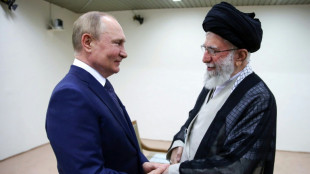
-
 AC Milan consolidate top-four credentials with win at Cremonese
AC Milan consolidate top-four credentials with win at Cremonese
-
Flights of fancy at Bottega Veneta, atmospheric mood at Armani in Milan
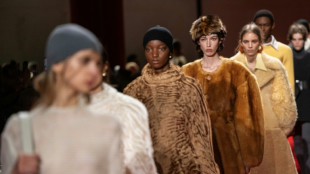
-
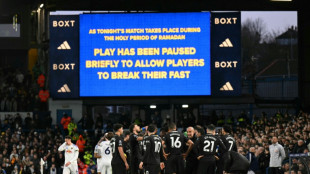 Guardiola calls for respect after Ramadan break is booed
Guardiola calls for respect after Ramadan break is booed
-
Afghanistan warns Iran war will impact whole region
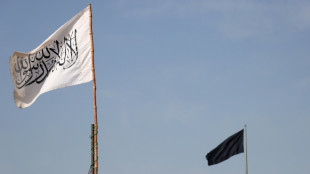
-
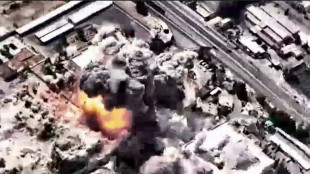 Iran launches fresh strikes across Gulf after vowing revenge for slain leader
Iran launches fresh strikes across Gulf after vowing revenge for slain leader
-
OPEC+ hikes oil production by more than expected following outbreak of Iran war
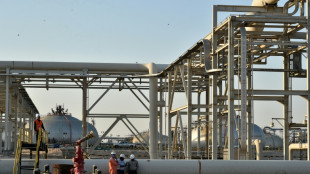
-
 Goggia tightens grip on World Cup super-G with victory in Andorra
Goggia tightens grip on World Cup super-G with victory in Andorra
-
Belgium seizes Russian 'shadow fleet' tanker
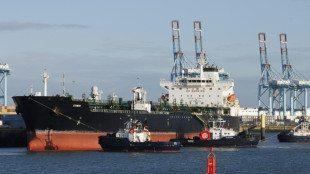
-
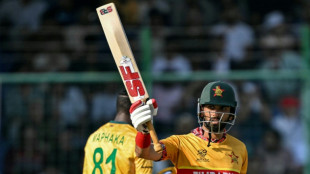 Raza steers Zimbabwe to 153-7 against South Africa
Raza steers Zimbabwe to 153-7 against South Africa
-
Kerr on target as Australia make winning start to Women's Asian Cup
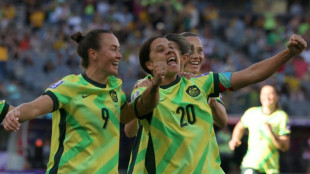
-
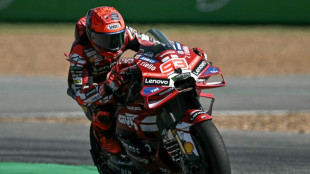 Marquez says 'unlucky' to retire from MotoGP season opener
Marquez says 'unlucky' to retire from MotoGP season opener
-
9 killed in pro-Iran protest at US consulate in Pakistan's Karachi
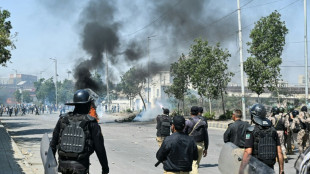
-
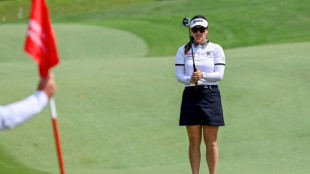 Green clinches Singapore title with help from caddie husband
Green clinches Singapore title with help from caddie husband
-
More flights cancelled as Iran conflict shuts Mideast hubs
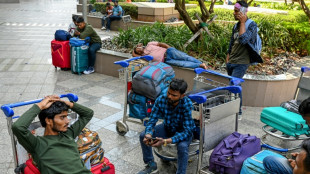
-
 'One Battle After Another' wins top producer award before Oscars
'One Battle After Another' wins top producer award before Oscars
-
Iran vows revenge for slain supreme leader despite Trump threat
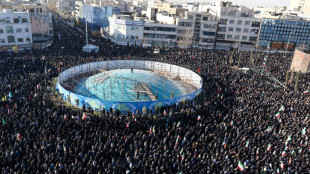
-
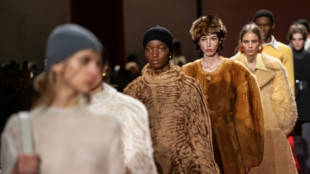 Flights of fancy at Bottega Veneta with shimmering, tactile collection
Flights of fancy at Bottega Veneta with shimmering, tactile collection
-
World Cup marks 100-day countdown amid political upheaval
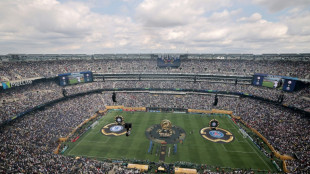
-
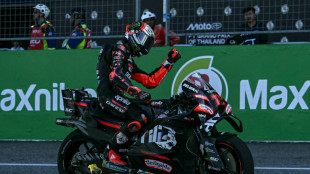 Bezzecchi wins MotoGP opener as Marquez retires
Bezzecchi wins MotoGP opener as Marquez retires
-
Pro-Iran protesters try to storm US missions in Pakistan, Iraq
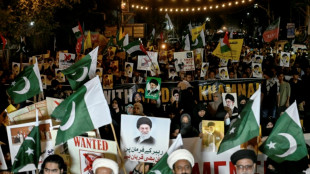
-
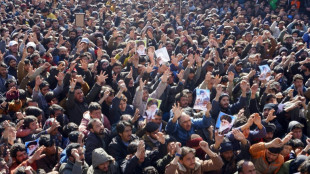 8 killed in pro-Iran protest at US consulate in Pakistan's Karachi
8 killed in pro-Iran protest at US consulate in Pakistan's Karachi
-
Latest developments after US, Israeli strikes kill Iran's Khamenei
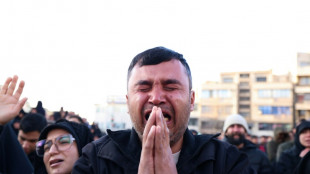
-
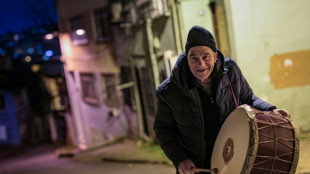 Before dawn, ancient drum rite wakes Istanbul faithful to fast
Before dawn, ancient drum rite wakes Istanbul faithful to fast
-
Music, mourning as Iran's Khamenei is killed
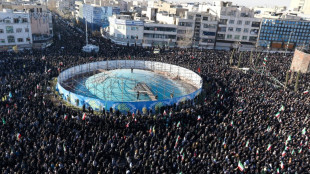
-
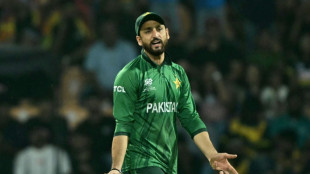 Pakistan cricket's lack of T20 evolution exposed by World Cup exit
Pakistan cricket's lack of T20 evolution exposed by World Cup exit
-
Cobolli downs Tiafoe to claim Mexican Open
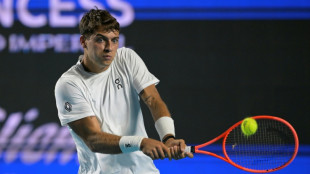
-
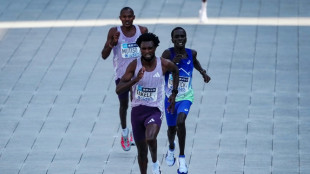 Takele defends Tokyo Marathon title after sprint finish
Takele defends Tokyo Marathon title after sprint finish
-
Hollywood's finest gather for guild's Actor Awards
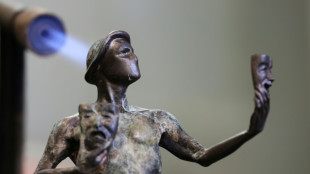

Doves, deaths and rations: Papal elections over time
Cardinals electing Pope Francis's successor will have an easier time than many of their predecessors, who endured spartan conditions and were even locked up so long that some of them died.
Here are some notable papal elections through the ages.
- The dove decides -
In 236, the Christian community of Rome was debating potential papal candidates when a white dove landed on the head of a bystander, Fabian.
"At this, everyone, as if moved by a single divine inspiration, eagerly and wholeheartedly called out that Fabian was worthy," according to Eusebius, a Church historian of the era.
The blessing was a mixed one for Fabian, who died 14 years later a martyr, persecuted by Emperor Decius.
- Large-scale bribery -
In the early Church, popes were elected by members of the clergy and the Roman nobility, and the votes were rife with meddling.
One of the most infamous elections was in 532, following the death of Boniface II, which involved "large-scale bribing of royal officials and influential senators", according to P.G. Maxwell-Stuart in "Chronicle of the Popes".
In the end, an ordinary priest was elected, Mercurius. He became the first pope to change his name -- to John.
In 1059, Nicholas II gave cardinals sole authority to choose pontiffs.
- Lock them up -
The idea of locking up the cardinals to encourage a quick decision began in the 13th century -- the word conclave comes from the Latin phrase meaning "with key".
In 1241, when the election was dragging on, the head of Rome's government locked the cardinals into a dilapidated building and refused to clean the lavatories or provide doctors for those who fell ill.
According to Frederic Baumgartner in his "Behind Locked Doors: A History of the Papal Elections", the cardinals only reached a decision after one of them died and the Romans threatened to exhume his corpse and have it make decisions.
After 70 days, they agreed on Goffredo Castiglioni, who became Celestine IV.
- Three years -
The longest conclave in history lasted almost three years following the death of Clement IV in November 1268, held in the papal palace at Viterbo, near Rome.
From late 1269 the cardinals allowed themselves to be locked in to try to reach a decision, and by June 1270, frustrated locals tore the roof off in a bid to speed things along.
They were apparently inspired by a quip by an English cardinal that without the roof, the Holy Spirit could descend unhindered.
Teobaldo Visconti became pope Gregory X in September 1271.
- Rations -
In response to the chaos the led to his election, Gregory X changed the rules, requiring cardinals to meet within 10 days of the pope's death -- and ordering that their food be reduced over time.
If there was no decision in three days, meals were to be reduced to only one of the two traditional Italian main courses.
After five days, they would be cut back to just bread, water and wine, according to John L. Allen's book "Conclave".
The cardinals were also barred from drawing on their incomes during a conclave.
- Camp beds -
Conclaves have for centuries been held in the Apostolic Palace, and since 1878 in its Sistine Chapel.
Cardinals have in the past slept in the Apostolic Palace, with cubicles erected with camp beds, and one bathroom for every 10 electors, according to Allen's "Conclave".
The windows were sealed shut but in 1978, when the conclave took place during a stifling August, there was a near revolt by cardinals who demanded they be opened.
John Paul II -- elected in a second conclave in that year, in October -- ordered the construction of the $20 million Santa Marta guesthouse in the Vatican grounds, where Francis himself lived, and where the cardinals now stay.
It has more than 100 guest suites and around two dozen single rooms. But during the conclave there, too, the windows are sealed shut.
- Non cardinals -
Technically any baptised male can become pope, but the last non-cardinal to be elected was the archbishop of Bari, Bartolomeo Prignano, who became Urban VI in 1378.
- Reluctant pontiff -
Not everyone is keen. The first words of Albino Luciani, on becoming John Paul I in 1978, were "May God forgive you for what you have done!"
He died 33 days later.
- Champagne -
In 1978, after appearing to the crowds in St Peter's Square, John Paul II reportedly walked around pouring champagne for the cardinals, and sang Polish folk songs.
In 2005, Benedict XVI invited all the cardinals to stay for dinner with champagne and there were also songs, the late cardinal Cormac Murphy-O'Connor recalled afterwards.
- Shorter and shorter -
The longest conclave in more recent times was that of 1831, which elected Gregory XVI after more than 50 days.
The longest of the 20th century, lasted only five days (14 ballots) when Pius XI was elected in 1922.
In 2005, Benedict XVI was elected in just two days (four ballots) and Francis in 2013 also in two days (five ballots).
M.Thompson--AMWN
